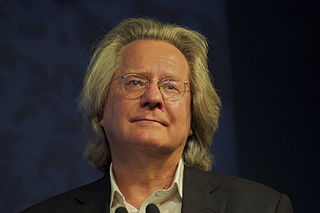A Quote by Epictetus
Remember that you ought to behave in life as you would at a banquet. As something is being passed around it comes to you; stretch out your hand, take a portion of it politely. It passes on; do not detain it. Or it has not come to you yet; do not project your desire to meet it, but wait until it comes in front of you. So act toward children, so toward a wife, so toward office, so toward wealth.
Related Quotes
Behave in life as at a dinner party. Is anything brought around to you? Put out your hand and take your share with moderation. Does it pass by you?
Do not stop it. Is it not yet come? Do not stretch your desire towards it, but wait till it reaches you. Do this with regard to children, to a spouse, to public post, to riches, and you will eventually be a worthy guest at the feast of life.
A poem, as a manifestation of language and thus essentially dialogue, can be a message in a bottle, sent out in the –not always greatly hopeful-belief that somewhere and sometime it could wash up on land, on heartland perhaps. Poems in this sense too are under way: they are making toward something. Toward what? Toward something standing open, occupiable, perhaps toward an addressable Thou, toward an addressable reality.
Your soul is that part of you that always strives for harmony, toward cooperation, toward sharing, toward reverence for life and as you choose, in each moment, to align yourself with harmony, or at least not to create more disharmony in the situation you're in, then you are consciously choosing to align yourself with your soul. You are consciously moving toward authentic power.
We must move from ... the primacy of technology toward considerations of social justice and equity, from the dictates of organizational convenience toward the aspirations ofself realization and learning, from authoritarianism and dogmatism toward more participation, from uniformity and centralization toward diversity and pluralism, from the concept of work as hard and unavoidable, from life as nasty, brutish, and short toward work as purpose and self~fulfillment, a recognition of leisure as a valid activity in itself.
As you begin to feel this enormous shift of consciousness, called multisensory perception, emerging in your awareness, you begin to reorient yourself. It's a reorientation that occurs toward yourself as more than a mind and a body; it's a reorientation that occurs toward others; toward your life as meaningful, rather than predetermined. It's a reorientation that occurs toward the universe as alive, wise and compassionate, instead of inert (which means dead) and random.
People do not drift toward Holiness. Apart from grace-driven effort, people do not gravitate toward godliness, prayer, obedience to Scripture, faith, and delight in the Lord. We drift toward compromise and call it tolerance; we drift toward disobedience and call it freedom; we drift toward superstition and call it faith. We cherish the indiscipline of lost self-control and call it relaxation; we slouch toward prayerlessness and delude ourselves into thinking we have escaped legalism; we slide toward godlessness and convince ourselves we have been liberated.
When you pray for anyone you tend to modify your personal attitude toward him. You lift the relationship thereby to a higher level. The best in the other person begins to flow out toward you as your best flows toward him. In the meeting of the best in each a higher unity of understanding is established.
When any relationship is characterized by difference, particularly a disparity in power, there remains a tendency to model it on the parent-child-relationship. Even protectiveness and benevolence toward the poor, toward minorities, and especially toward women have involved equating them with children.







































